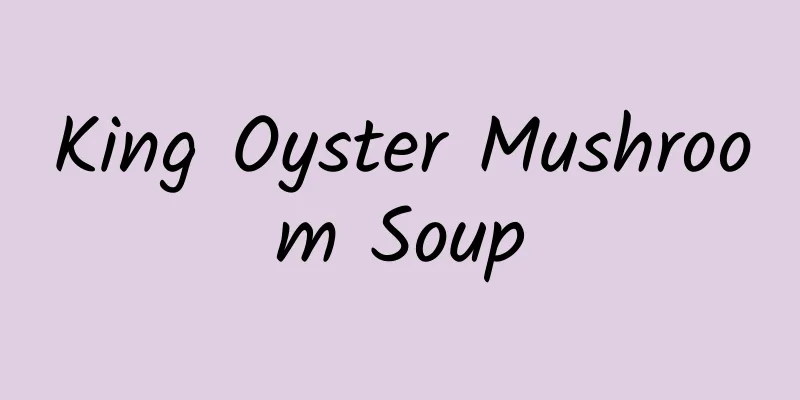What is the French Socialist Party like? French Socialist Party reviews and website information

|
What is the French Socialist Party? The Socialist Party is a social democratic party in France. It is the largest left-wing party in France and a member of the Socialist International and the European Socialist Party. Together with the right-wing Union for a Popular Movement, it is known as one of the two major political parties in contemporary France. Its predecessor was the French branch of the Workers' International founded on April 23, 1905. The current party leader is the first secretary Harlem Dezell. Website: www.senateurs-socialistes.fr The French Socialist Party is one of the most influential left-wing political parties in France, with a history that can be traced back to the early 20th century. As an important force on the French political stage, the Socialist Party not only plays a key role in domestic policy making, but also actively participates in the social democratic movement on the international stage. This article will explore in depth the history, organizational structure, political propositions, and status and influence of the French Socialist Party in French politics. 1. Historical Origins of the French Socialist PartyThe predecessor of the French Socialist Party was the French Section of the Workers' International (Section Française de l'Internationale Ouvrière, SFIO), which was established on April 23, 1905. The establishment of this organization marked the formal unification of the French socialist movement, and its goal was to achieve socialism through the workers' movement and parliamentary struggle. In its early days, the French branch of the Workers' International actively participated in French politics, promoting social reforms and the protection of workers' rights. However, the outbreak of World War I caused a split within the party, with some members supporting the war and others adhering to a pacifist stance. After the war, the contradictions within the party intensified further, leading to some members leaving and establishing the French Communist Party. After World War II, the French section of the Workers' International continued to play an important role in French politics, but its influence gradually weakened. In 1969, the French section of the Workers' International was dissolved and replaced by the French Socialist Party (Parti Socialiste, PS). Under the leadership of François Mitterrand, the newly established French Socialist Party gradually developed into the main force of the French left. 2. The Organizational Structure of the French Socialist PartyThe organizational structure of the French Socialist Party is relatively complex, with the core being the Party Congress (Congrès du Parti Socialiste). The Party Congress is the highest decision-making body of the party, responsible for formulating the party's program and electing the party's leadership. The Party Congress is composed of party representatives from all over the country and is held every three years. Under the Party Congress, there are the National Committee (Conseil National) and the National Executive Committee (Bureau Exécutif National). The National Committee is the party's permanent executive body, responsible for supervising the party's daily operations and policy implementation. The National Executive Committee is composed of the party's main leaders and is responsible for formulating the party's specific policies and strategies. In addition, the French Socialist Party also has local branches, including the Regional Committee (Conseil Régional) and the Departmental Committee (Conseil Départemental). These local branches are responsible for promoting party policies and organizing activities at the local level. 3. The political stance of the French Socialist PartyThe French Socialist Party is a typical social democratic party. Its political propositions mainly include the following aspects: 1. Social justice and equalityThe French Socialist Party is committed to promoting social justice and equality, advocating to narrow the gap between the rich and the poor through tax and welfare policies and guarantee the basic living needs of all citizens. The main policies of the party include raising the minimum wage, expanding social security coverage, and increasing subsidies for low-income families. 2. Economic reform and sustainable developmentIn terms of economic policy, the French Socialist Party advocates promoting economic stability and sustainable development through government intervention and market supervision. The main policies of the party include strengthening financial supervision, promoting green economic development, and supporting innovation of small and medium-sized enterprises. 3. Education and CultureThe French Socialist Party attaches great importance to the development of education and culture, and advocates improving the quality of education and promoting cultural diversity and innovation through education reform. The main policies of the party include increasing investment in education, promoting educational equity, and supporting cultural and artistic creation. 4. International relations and European integrationIn terms of international relations, the French Socialist Party advocates promoting global peace and development through multilateral cooperation and international organizations. The main policies of the party include supporting UN reform, promoting the European integration process, and strengthening cooperation with developing countries. IV. The Status and Influence of the French Socialist Party in French PoliticsSince its founding, the French Socialist Party has played an important role in French politics. Especially during the presidency of Mitterrand (1981-1995), the Socialist Party dominated the French political agenda and promoted a number of important social reforms. Under Mitterrand's leadership, the French Socialist Party successfully implemented a number of landmark policies, including nationalization reform, the expansion of the social welfare system, and the abolition of the death penalty. These policies not only profoundly affected France's social structure, but also consolidated the position of the Socialist Party in French politics. However, after entering the 21st century, the French Socialist Party has faced many challenges. First, internal divisions and unstable leadership have led to a decline in the party's cohesion and execution. Second, the complexity of the external environment, including globalization, economic crisis, immigration issues, etc., has put the traditional policies of the Socialist Party to new tests. Despite this, the French Socialist Party remains an important force in French politics. In the 2012 presidential election, Socialist candidate François Hollande was successfully elected president, once again demonstrating the influence of the Socialist Party. During his tenure, Hollande promoted a series of reforms, including the legalization of same-sex marriage and tax reform, further consolidating the Socialist Party's policy propositions. 5. Future Prospects for the French Socialist PartyLooking ahead, the French Socialist Party faces both challenges and opportunities. On the one hand, as French society changes and the global situation becomes more complicated, the Socialist Party needs to constantly adjust its policies and strategies to adapt to the new environment and needs. On the other hand, as the main force of the French left, the Socialist Party still has the opportunity to regain the trust and support of voters through unity and reform. In the future, the French Socialist Party may make efforts in the following areas: 1. Party ReformThe French Socialist Party needs to strengthen internal democracy and transparency, and enhance the participation and sense of belonging of its members. By reforming the internal election system and decision-making mechanism, the Socialist Party can enhance its cohesion and execution. 2. Policy innovationIn the face of new social and economic challenges, the French Socialist Party needs to constantly innovate its policy propositions, especially in the fields of economy, environment, immigration, etc. By proposing forward-looking and feasible policies, the Socialist Party can attract more voter support. 3. International cooperationIn the context of globalization, the French Socialist Party needs to strengthen its cooperation with the international social democratic movement to promote global peace and development. By participating in international organizations and multilateral cooperation, the Socialist Party can enhance its international influence. In short, as an important part of French politics, the future development of the French Socialist Party will have a profound impact on the political landscape and social trends of France. Through continuous reform and innovation, the French Socialist Party is expected to continue to play an important role on the future political stage. 6. Important Figures of the French Socialist PartyIn the course of its development, the French Socialist Party has produced many important political figures who have had a profound impact on the development of the party and the political process in France. 1. François MitterrandFrançois Mitterrand is an iconic figure of the French Socialist Party and one of the longest-serving presidents in French history. Mitterrand served as President of France from 1981 to 1995, during which time he promoted a series of important social and economic reforms, including nationalization, expansion of social welfare and abolition of the death penalty. Mitterrand's leadership not only consolidated the position of the Socialist Party in French politics, but also made it an important leader of the international social democratic movement. 2. Lionel JospinLionel Jospin is another important leader of the French Socialist Party. He served as Prime Minister of France from 1997 to 2002. During his tenure, Jospin promoted a number of reforms, including a 35-hour work week and youth employment programs. Although his government lost the 2002 presidential election, Jospin's policies and leadership style still had a profound impact on the French Socialist Party. 3. François HollandeFrançois Hollande served as President of France from 2012 to 2017 and is one of the important leaders of the Socialist Party in the 21st century. During his tenure, Hollande promoted policies such as the legalization of same-sex marriage and tax reform. Despite the many challenges faced during his term, Hollande still left an important mark in the history of the Socialist Party. 4. Harlem DésirHarlem Dezell is the current First Secretary of the French Socialist Party, a position he has held since 2018. Dezell has a significant influence within the Socialist Party and in French politics, and is committed to promoting party reform and unity to meet current political and social challenges. 7. French Socialist Party and European Socialist PartyThe French Socialist Party is an important member of the Party of European Socialists (PES), which actively participates in the process of European integration. The Party of European Socialists is a major left-wing party alliance in the European Parliament, dedicated to promoting social democratic policies in Europe. As a member of the European Socialist Party, the French Socialist Party holds several seats in the European Parliament and participates in the formulation and promotion of EU policies. The French Socialist Party supports European integration and advocates promoting Europe's economic, social and environmental development by strengthening EU institutions and policies. The French Socialist Party also actively participates in the internal activities of the European Socialist Party and cooperates with other member parties to jointly formulate and promote the European social democratic agenda. Through its participation in the European Socialist Party, the French Socialist Party not only expands its international influence, but also provides support for France's position and interests in the European Union. 8. French Socialist Party and French Communist PartyThe French Socialist Party and the French Communist Party (Parti Communiste Français, PCF) have a complex relationship in history. Both parties originated from the French section of the Workers' International, but in 1920, due to different positions on the Russian Revolution and the international communist movement, the French Communist Party broke away from the French section of the Workers' International and became an independent party. For most of the 20th century, the French Socialist Party and the French Communist Party were the two main forces of the French left, with both cooperation and competition between the two. After World War II, the two parties formed a left-wing alliance many times to fight against right-wing forces. However, with the Cold War and changes in the international situation, the relationship between the two parties gradually became distant. After entering the 21st century, the French Socialist Party and the French Communist Party still cooperate in certain policies and elections, but there are significant differences in their ideologies and policy propositions. The French Socialist Party tends to be social democracy and advocates the realization of socialism through reform and gradual means, while the French Communist Party adheres to Marxism and communism and advocates the realization of socialism through revolution and thorough social change. 9. French Socialist Party and French Trade UnionsThe French Socialist Party has close ties with the French trade union movement. The trade unions are an important support force for the French Socialist Party, and the two have common goals in promoting social reforms and protecting workers' rights. The French Socialist Party maintains contact with the trade union movement through its internal trade union organizations (such as the Confederation of Workers' Power and the French Confederation of Labor), and takes the interests and demands of trade unions into consideration in policy making. The trade unions provide the Socialist Party with a broad social base, helping it win in elections and political struggles. However, with the changes in French society and the decline of the trade union movement, the relationship between the French Socialist Party and trade unions is also facing new challenges. The Socialist Party needs to attract a wider range of social groups while maintaining its traditional ties with trade unions in order to cope with the current political and social environment. 10. Media and Propaganda of the French Socialist PartyThe French Socialist Party has extensive experience and resources in media and publicity. The party's main media include Le Socialiste and Le Nouvel Observateur, which provide a platform for publicity and communication. In addition, the French Socialist Party also actively uses the Internet and social media for propaganda, interacting with voters through websites, blogs, Twitter, Facebook and other platforms to spread the party's policies and ideas. The official website of the Socialist Party (www.senateurs-socialistes.fr) is an important information release and communication platform for the party, providing detailed information on the party's history, policies, activities and other aspects. Through diversified media and propaganda means, the French Socialist Party has not only expanded its influence, but also strengthened its connection and interaction with voters. In the future, the Socialist Party will continue to innovate its media and propaganda strategies to meet new political and social challenges. 11. Youth Organization of the French Socialist PartyThe French Socialist Party attaches great importance to youth organizations and youth participation, believing that youth are the future and hope of the party. Youth organizations within the party include the Socialist Youth League (Mouvement des Jeunes Socialistes, MJS) and the Socialist Student Party (Etudiants Socialistes), which have trained a large number of young party members and leaders for the Socialist Party. The Socialist Youth League and the Socialist Student Party attract and cultivate young talents and promote youth participation in political and social affairs by organizing various activities, seminars and training. Youth organizations also actively participate in the party's decision-making and activities, providing new ideas and impetus for the party's development and policy formulation. Through youth organizations, the French Socialist Party has not only strengthened its social base, but also reserved talents for future political development. In the future, the Socialist Party will continue to support and strengthen youth organizations to meet new political and social challenges. 12. International Influence of the French Socialist PartyAs an important member of the Socialist International, the French Socialist Party has a significant influence in the international social democratic movement. The Socialist International is an alliance of social democratic parties around the world, dedicated to promoting global peace, democracy and social justice. As a member of the Socialist International, the French Socialist Party actively participates in international affairs and promotes social democratic policies around the world. Through the Socialist International, the Socialist Party cooperates with social democratic parties in other countries to jointly formulate and promote the global social democratic agenda. In addition, the French Socialist Party also maintains contact with political parties and organizations in other countries through its international relations department to promote international cooperation and exchanges. Through its participation on the international stage, the French Socialist Party not only expands its international influence, but also provides support for France's international status and interests. 13. Future Challenges for the French Socialist PartyAlthough the French Socialist Party has an important position in French politics, its future development still faces many challenges. The following are the main challenges that the Socialist Party may face in the future: 1. Party divisions and leadership instabilityIntra-party divisions and unstable leadership are one of the main challenges facing the French Socialist Party. In recent years, there have been many divisions and disputes within the Socialist Party, which have led to a decline in the party's cohesion and execution. In order to meet this challenge, the Socialist Party needs to strengthen party unity, establish a stable leadership, and enhance the party's cohesion and execution. 2. Changes in the voter baseAs French society changes, the Socialist Party's traditional voter base has gradually shrunk. To meet this challenge, the Socialist Party needs to expand its voter base and attract more young voters, immigrant voters and middle-class voters. By innovating its policies and propaganda strategies, the Socialist Party can regain the trust and support of voters. 3. Challenges of globalization and European integrationGlobalization and European integration are important challenges facing the French Socialist Party. As globalization and European integration develop, the French Socialist Party needs to adjust its policies and strategies to cope with the new international environment and challenges. By strengthening international cooperation and promoting European integration, the Socialist Party can play a greater role in the process of globalization and European integration. 4. Economic and environmental issuesEconomic and environmental issues are long-term challenges facing the French Socialist Party. As the global economy becomes more complex and environmental problems intensify, the Socialist Party needs to propose forward-looking and feasible economic and environmental policies to meet new economic and environmental challenges. By promoting a green economy and sustainable development, the Socialist Party can make greater progress on economic and environmental issues. In short, as an important part of French politics, the future development of the French Socialist Party will have a profound impact on the political landscape and social trends of France. Through continuous reform and innovation, the French Socialist Party is expected to continue to play an important role on the future political stage. |
<<: How is PGE Poland? PGE Poland reviews and website information
>>: How is CapitaLand Group? CapitaLand Group Reviews and Website Information
Recommend
How is the University of Tartu in Estonia? Reviews and website information of the University of Tartu in Estonia
What is the website of the University of Tartu in ...
What are the acidic foods? What acidic foods can help you have a daughter?
Nowadays, many people want to have a daughter or ...
Harvesting, seed saving and storage of cowpea
When the cowpea reaches a certain maturity, it ne...
The nutritional value of drunken dates and the benefits and effects of eating drunken dates
Drunken dates are a common food ingredient. They ...
The efficacy and function of Guri Fragrant
Osmanthus fragrans is actually the sweet-scented ...
Nutritional value and edible effects of cherries
Cherries are also called cherries. They have good...
What are the effects of hot foods?
The term "hot food" is a new term nowad...
How to grow azaleas? Things to note when growing azaleas
Azalea, also known as rhododendron, has bright co...
What should you pay attention to when drinking lemon water?
Lemon water is a health drink with excellent effe...
How to make cold black fungus and watermelon rind
Today I recommend a delicacy to everyone, which i...
Duck Sauce Porridge
The taste of duck sauce porridge is quite good. L...
What are the benefits of eating chestnuts raw? Six benefits of eating chestnuts raw
Everyone must have eaten chestnuts. The sugar-fri...
The efficacy and function of shallow water lotus root
Shallow water lotus root is a type of lotus root....
The benefits of eating steamed persimmon cakes
When persimmons are ripe in large quantities, peo...
What is TIS Co., Ltd. like? TIS Co., Ltd. reviews and website information
What is TIS Co., Ltd.? TIS Co., Ltd. (Toyo Informa...









